Mental Health Benefits of Hiking + Tips for Beginners
Walking is a perfect activity to incorporate movement and exercise into your daily routine. Depending on where you go for walks, there may be benefits in addition to physical fitness. Compared to walking on the pavement in a city or crowded urban area, being in nature while you walk has additional benefits for your mental health and wellness.
The benefits of being outdoors for mental health are countless. In nature, your body and mind can slow down, allowing you to be mindful and present.
Imagine a babbling brook or crashing waves, birds chirping, rain landing softly on leaves, trees gently swaying with the breeze. Picture yourself breathing in the fresh ocean air and feeling the warmth of the sun on your skin. Smell the earthy scent of the trail beneath your feet or the sweetness of blooming flowers or the tide gently moving out. Plus, there’s the opportunity to spot and observe wildlife in its natural habitat.
The sights, the smells, and the sounds of nature are calming. Plus, exposure to the sun (in short bursts) helps your body naturally produce vitamin D, which is a key component in preventing chronic diseases such as heart disease, hypertension, and depression. Read more about how vitamin D works.
This month’s guest writer shares her thoughts on why hiking and mental health go hand-in-hand and some hiking tips for beginners.
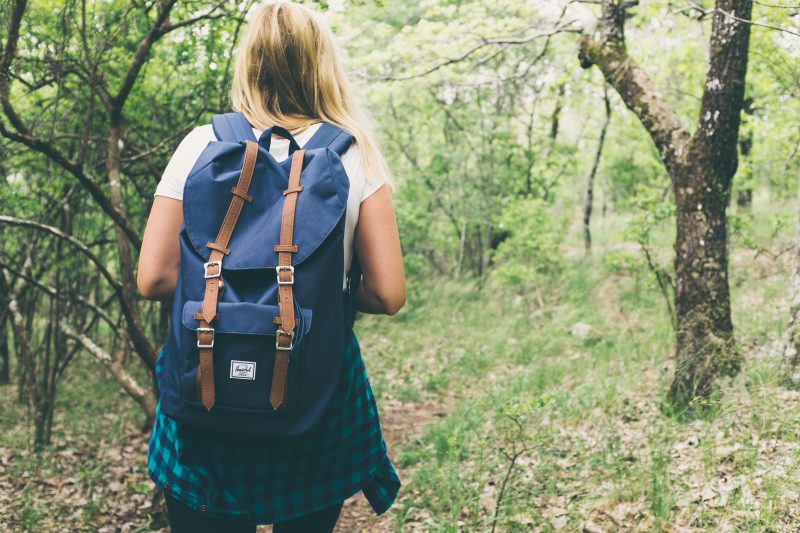
Physical + mental health benefits of hiking
More and more people are getting into hiking because of physical and mental health benefits. Numerous studies have shown that hiking helps lower the risk of heart disease, improves balance, lowers blood pressure and blood sugar levels, helps control weight, and relieves symptoms of stress and anxiety.
Hiking is classified as a low-impact cardiovascular workout, which means it is suitable for people of all ages, provided they are not suffering from heart disease. It is also a weight-bearing exercise, meaning it builds strength in many important muscle groups and improves bone density.
Plus, there are significant mental health benefits to hiking, especially if the hike is in a natural environment away from urban areas and crowds. Mountain hikes are the most beneficial, but any location where there are forests, lakes or beaches that are not crowded with tourists can improve mental health.
Even the travel involved in getting there can be beneficial, too. There have been studies that conclude travel helps to improve mental health because it promotes both the health and resilience of the brain. And other studies have shown that travel improves emotional health because of the social interactions and bonding opportunities that travel provides.
Read More: Why Travel is Good For Mental Health According to a Holistic Health Coach
If you’ve not done much hiking before, it’s best to start with day hikes before venturing into something more adventurous, perhaps involving overnight stays in cabins or at campsites. Here are a few tips to ensure that your day hikes are enjoyable experiences.
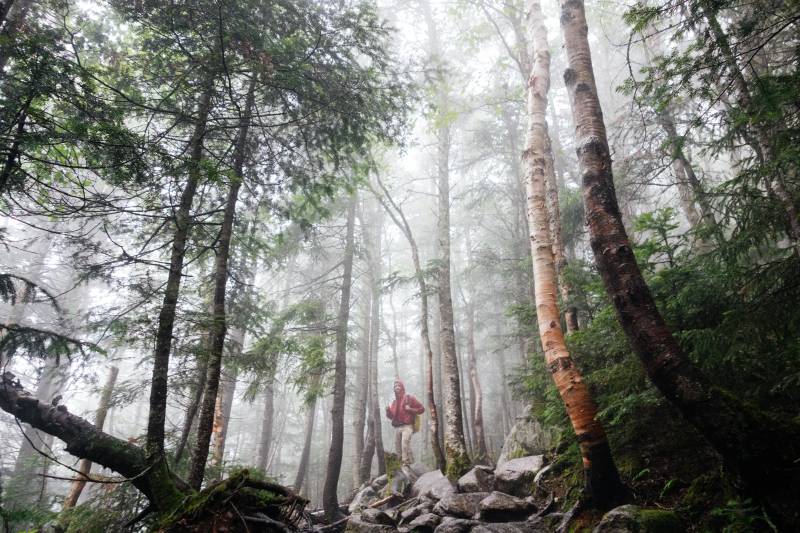
Hiking Tips For Beginners
If you’re new to venturing up a mountain or into the woods for a hike to benefit your mental health, here are some things to think about before you go.
Consider your level of fitness
Hiking is suitable for people of all ages and levels of fitness, but it’s important not to push yourself beyond your limits when starting to hike. Take it especially easy on the first hike, and maybe only plan a half-day hike if you have doubts about your ability to walk for a full day.
Make frequent rest stops and don’t let anybody hiking with you force you to walk at a pace beyond what you feel comfortable with. If you feel like a longer rest at any stage, try to find a quiet spot with good views, so you can absorb all of the benefits of being in nature whilst you rest.
You may be excited about your first hike and tempted to go trailblazing forward, but you will soon run out of energy if you do this. Instead, pace yourself to conserve energy. After all, you shouldn’t be in a hurry, hiking isn’t a race. When you find yourself climbing up steep slopes, you’ll be glad you leveled out your pace earlier and have the energy to make it up safely.
Prepare your hiking gear
For day hikes you’ll only need a lightweight day-pack to carry water and food but if you are carrying anything heavy, like camera gear, it may be better to invest in a small backpack. Ideally, one with a frame, padded shoulder straps, and a waist strap to ensure that your backpack doesn’t feel like a ton of bricks by the end of the day.
Other things to pack for a hike for mental health are sunscreen and insect repellant, a flashlight, a compass, a power pack for your mobile phone, trail map and a small first aid kit. Perhaps a condensed version of a Healthy Travel Kit.
A pair of high-quality hiking shoes or boots is a must, too, and these should be worn with woolen socks to prevent blisters. Take a spare pair of socks as well, in case the first pair get wet whilst hiking.
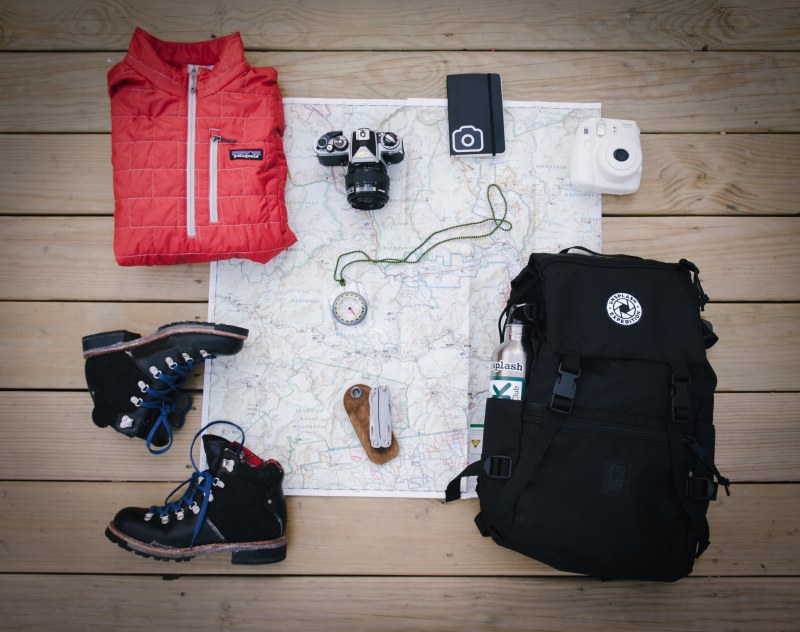
Choose the right trail
When you’re a beginner, it’s advised to choose an easy trail to start with. Select a route that is longer than the amount of distance you usually walk but not more than twice the distance that you know you’ve walked in a day before.
Once you’ve chosen a trail, check it out on the map and make a note of any places where there may be a danger of taking wrong turns. If you are hiking more for the mental health benefits than physical benefits, choose a trail that doesn’t have many uphill climbs but is full of beautiful scenery.
Check the weather before leaving
Some hiking experiences are ruined when the hiker fails to check the 24-hour weather forecast, then it starts raining halfway through the hike. Some people like walking in the rain, but this is more for experienced hikers because it can be slippery underfoot and requires investment in the right wet weather gear.
Checking on the weather forecast in advance will also give you a heads up on the type of clothing to wear and any extra items to bring. If it’s likely to turn out to be a hot day, then you will need to bring more water to ensure that you don’t become dehydrated in the latter part of the hike. Or if the sun will be shining all day, you’ll want to wear light-colored clothing to deflect the sun and prevent overheating.
Consider joining a group
If you aren’t comfortable hiking by yourself, because of the isolation of the location (or any reason you may have), then find a local group that you can join. Hiking with a group is a great way to enjoy this pastime because not only will they give you advice based on their first-hand experiences, it’s also more enjoyable and motivating to tackle trails with a bunch of people cheering for each other.
Before you join a group, make sure they are willing to accept beginners because they might walk at a pace fit for more experienced hikers.
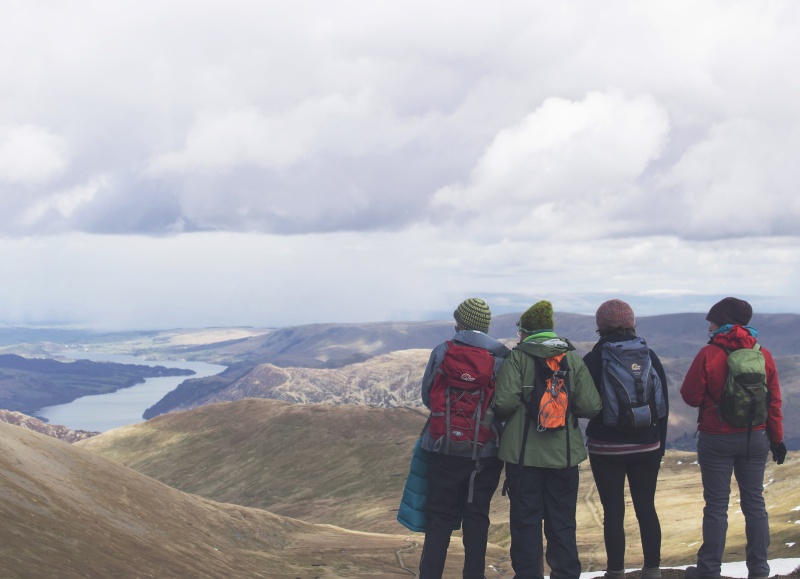
Tell someone where you’ll be
Let someone outside of the hiking group know where you will be and the itinerary for that hike (especially when you expect to return). You may ask this person to check-in on you after several hours just to be safe. You can also carry an emergency device like a SPOT tracker that provides emergency assistance via satellite in case your phone loses signal. This serves as a good emergency backup when you need it.
Bring your trash with you
It’s up to every hiker and outdoor enthusiast to care for the natural spaces they pass through. Make sure to leave no trash behind. It’s your responsibility to help keep trails and mountains stay as beautiful as the way you found them.
Read More: 6 Ways to Avoid Single-Use Plastic When You Travel
About the Author
Carolette is a Freelance Content Writer & Digital Nomad from the Philippines. She writes on a wide range of topics and has worked with startups, corporates, and individuals globally.
Connect with Carolette on Twitter.
My Health & Wellness Resources page contains helpful sites, phone numbers, and information for anyone needing mental health + wellness assistance.
SAVE THIS POST FOR LATER!
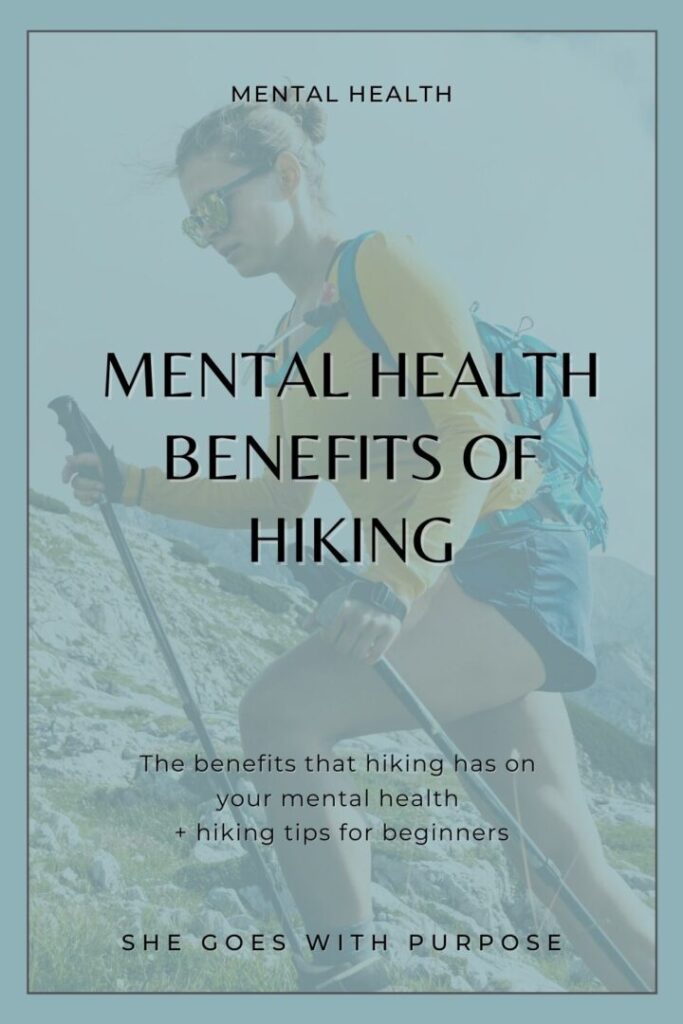
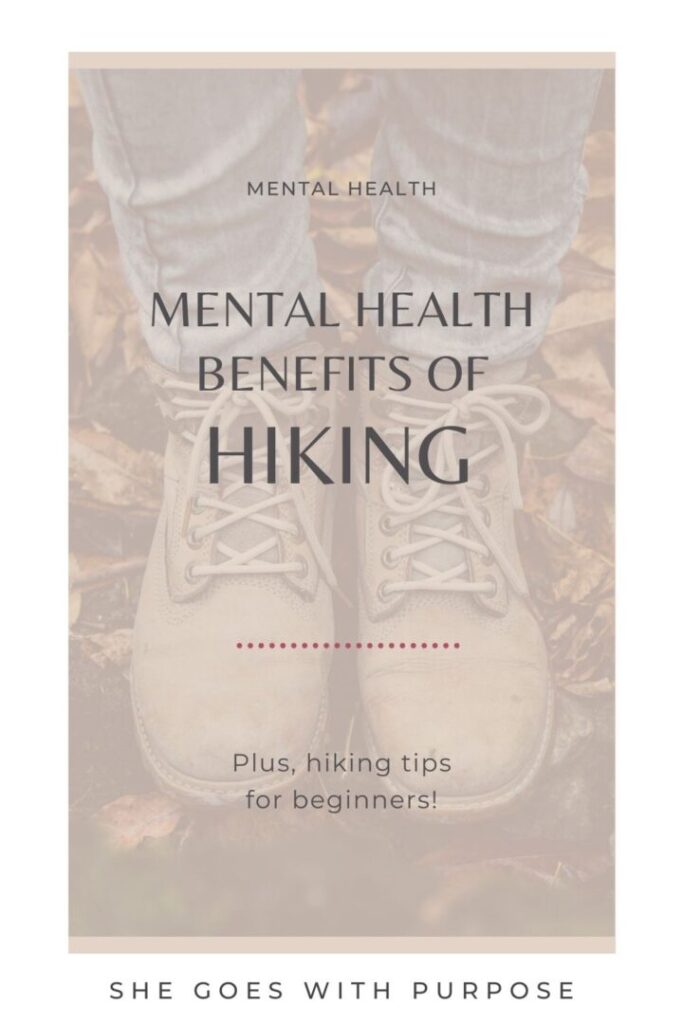
It will be very helpful for the beginners Thanks for the information.